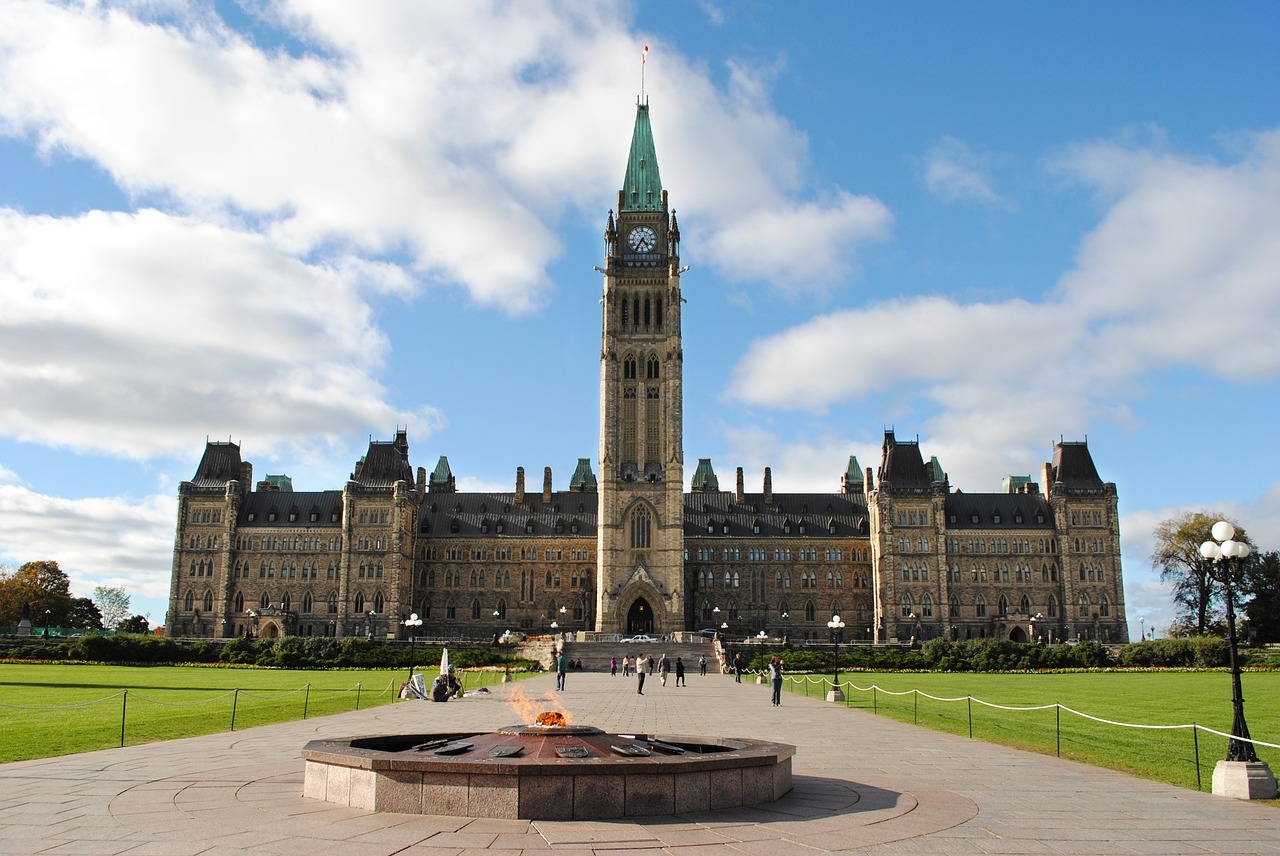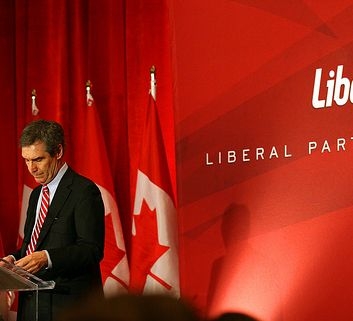
Taxpayers Need Sutcliffe to take a Strong Approach Instead of “Searching for Consensus”
At the close of 2023, there was consensus that the Ottawa City Council had achieved some level of civility as former “Watson club” members, independently minded councillors, and the progressives on Council appeared to be working together.
The collegiality might appear to be a measure of success, but the persistent issues that have plagued the city for the last decade—transit, addiction, homelessness, and housing—have only grown worse.
Now halfway through his mandate and with City Hall’s self-declared financial crisis topping the list of issues that need fixing and that demand strong leadership, Mayor Mark Sutcliffe needs to be, in the words of Martin Luther King Jr., “a moulder of consensus” rather than simply “a searcher for consensus.”
Had Sutcliffe handled any of these issues better, he could have ended 2024 in a stronger position. Instead, halfway through his mandate, the former entrepreneur and broadcaster, who campaigned on fiscal responsibility, change, and responsible government, has not proven his mettle.
Premier Doug Ford may be divisive, but he clearly understands municipal politics. As a Toronto City Councillor, he saw the gridlock caused by Ontario’s independent, nonpartisan municipal system.
In response, Ford introduced the Strong Mayors, Building Homes Act, 2022, significantly increasing the executive power of mayors. This act grants mayors new authority, including the ability to draft city budgets—a task traditionally handled by council committees—oversee the appointment and dismissal of city managers and department leaders, create or reorganize municipal administrative departments, and veto by-laws that conflict with provincial government priorities.
In Ottawa, where the mayor is elected by all citizens to represent the entire city, it’s worth noting that the mayor typically holds just one vote on Council, the same as any ward councillor. This stark imbalance makes the veto power granted by the act particularly notable, as it can only be overridden by a two-thirds supermajority of the Council—a rare and unlikely scenario.
Despite the sweeping powers that transform the mayoral position from a single vote with administrative responsibilities into something akin to that of an executive director, Mayor Sutcliffe opposes the enhanced authority.
Instead, he adheres to the traditional format of relying on committees, council deliberations, and multiple reviews by unelected city staff heavily involved in crafting motions for councillors to put forward.
Sutcliffe’s process-driven approach and lack of a real vision for the city, which carried him through 2023, has only hurt Ottawa taxpayers in 2024, who will pay even more for his nice-guy, consensus method in years to come.
In his campaign for “Fairness for Ottawa,” the mayor pleaded with the federal government to increase its PILTS (Payment In Lieu of Taxes given for federal government properties in the city), saying that Ottawa was in a deficit because of the unfairly low compensation.
The mayor has tied OC Transpo’s revenue shortfalls, in particular, to the PILTS on his Fairness for Ottawa page, where he warns of transit fare increases and tax hikes if the feds don’t pony up the cash.
The federal government, facing significant financial constraints and spending far more than it earns, appears unlikely to prioritize Ottawa’s needs—whether intentionally ignoring Mayor Sutcliffe or not. The $100 million in PILTs that the mayor claims Ottawa is owed may remain a distant hope, especially with the current government on shaky ground and a looming election.
The Liberals’ recent fall economic update underscores this reality, allocating just $31 million to transit in the greater Ottawa area. None of these funds are earmarked for operations; most will go toward a feasibility study for an interprovincial tram service. It’s clear that Ottawa shouldn’t expect a federal budget rescue to address its mounting economic challenges.
It must also be asked of Suttcliffe: if $100 million is such an issue, why was the city okay with allocating $500 million to the Lansdowne 2.0 project? Yet another P3 public-private that will cost more than Sutcliffe states is required to keep OC Transpo running by a factor of five.
Under Doug Ford’s Strong Mayor Act, the mayor would have had the executive power to modify or scrap the legislation surrounding the project. Instead, he consulted staff and the public, appeased certain councillors, and made compromise legislation.
Aside from PILTS payments and public transit funding, OC Transpo’s goose has been cooked for several years. The reason is quite simple: lousy management. Under Suttcliffe’s mayoral powers act, he could also shake up the management at the City of Ottawa.
OC Transpo boss Renee Amilcar has shown herself to be an obstructionist figure since the beginning of her mandate, blaming low bus service delivery on everything from weather to sick days to traffic. She is constantly obtuse with the Transit Commissioners, not wanting to respond to requests or study proposed options. Her disdain for working with councillors led Riley Brockington—perhaps the most levelheaded, reasonable, and mild-mannered person on the City Council—to call out Amilcar’s failure to improve bus service delivery during the city’s budget meeting.
Rather than supporting Brockington in his attempt to shed light on the dysfunction at OC Transpo, Sutcliffe suggested the budgetary meeting was not the time nor place. The ultimate irony is that Sutcliffe has been raising OC Transpo budgetary issues whenever possible yet fails to hear what Brockington is so clearly saying: OC Transpo has a budget shortfall because service is terrible—that’s why people are not taking public transit anymore.
Suttcliffe should restructure OC to remedy these issues, but instead, he has been oddly quiet about Amilcar’s performance and didn’t stick up for Brockington when Amilcar accused him of personally attacking her.
Housing is another area where the mayor could have used strong mayoral powers to enact real change. Whether he knows it or not, his inability to stand up to the federal government has made the city’s homelessness crisis worse.
Point and case is the resettlement of refugees to Ottawa. The federal Canada Border Control Services controls the influx of migrants and asylum seekers without care or concern for where they will reside. Many end up in homeless shelters because of the shortage of affordable housing. In March, Peter Tilley of the Ottawa Mission told CBC News that they turn away 60-70 people each night.
Suttcliffe’s response to the volume of newcomers taking up beds in Ottawa shelters was to attend a rally supporting refugees, asking the federal government for money to help house newcomers in makeshift accommodations. The federal Liberals ponied up $362 million to help cities and provinces house refugees, but what about the remaining 80 percent looking for a bed who are residents of the national capital?
This year was not a good one for the municipal government in Ottawa. The mayor has the power to take concrete action on housing and reshape OC Transpo. Instead, he largely offloaded these issues to city committees, who have only made things worse.
Ottawa needs Mark Sutcliffe to be a strong leader for the second half of his term as mayor. We need him at the helm, taking a stand, pursuing a vision, and empowering his team at City Hall to find solutions to the financial crisis, transit, addiction, homelessness, housing, and more.
Searching for consensus and then raising fees and taxes while cutting service is not a burden Ottawans should bear due to Mark Sutcliffe’s failure to be a strong mayor.
Photo: Tero Vesalainen, iStock










